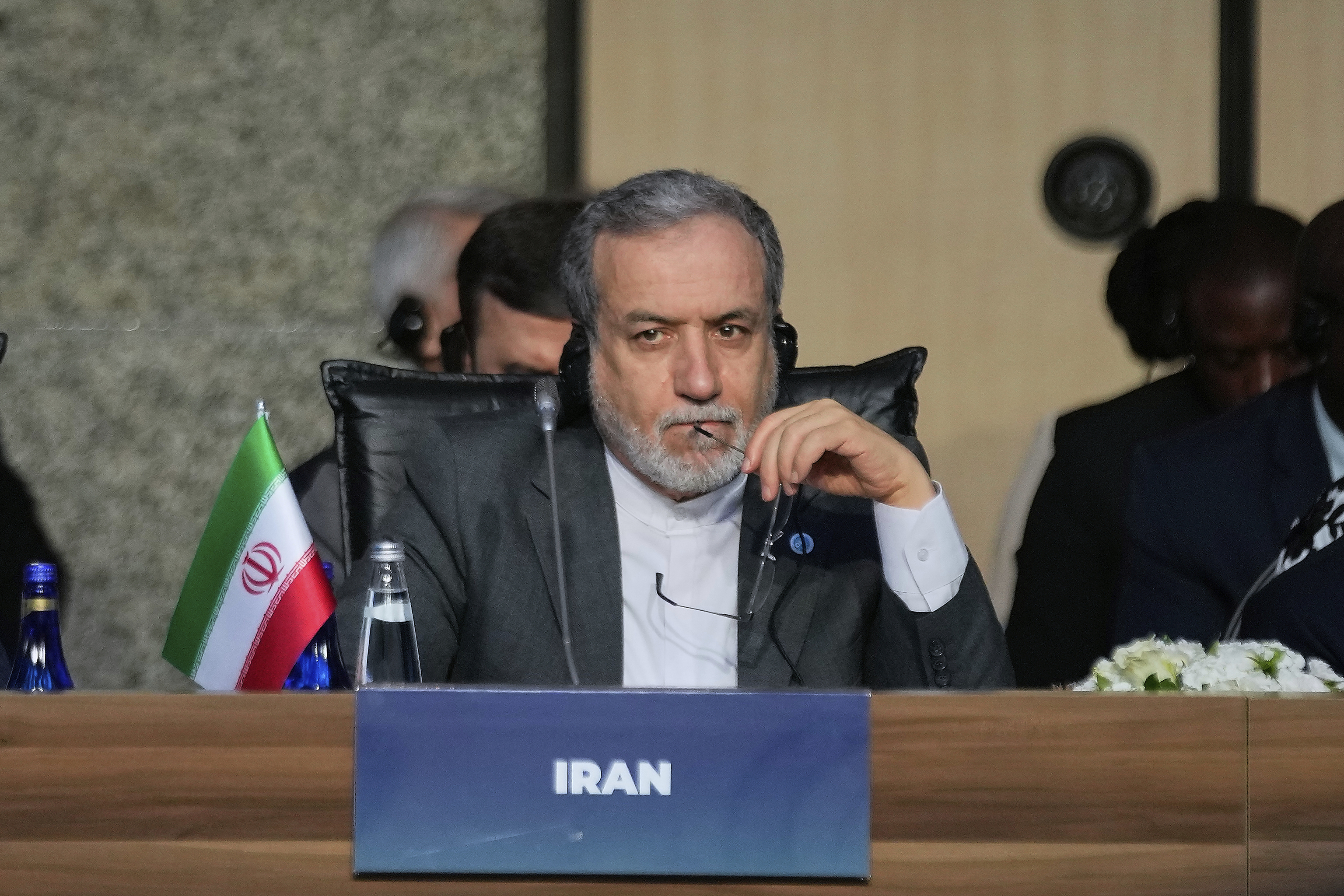European Foreign Ministers, gathered in Geneva with their Iranian counterpart, Abbas Araghchi, called for a four-point plan to move towards a diplomatic solution to the conflict with Israel. From Paris, Emmanuel Macron summarized the European proposals as follows: "zero enrichment" of uranium, ballistic capacity supervision, abandonment of financing for terrorist groups in the region, and the release of foreign prisoners in Iran.
Abbas Araghchi, who has maintained an open line during the conflict with the so-called E3 group (France, United Kingdom, and Germany), requested time during the meeting to consult with Tehran. European Commission Vice President Kaja Kallas also participated in the meeting, coordinated with United States, despite not actively participating.
After three hours of discussions, European ministers acknowledged that "tangible progress has been made" and highlighted Iran's willingness to "continue discussions on the nuclear program and other issues." The three ministers agreed on the need to involve the United States to progress towards de-escalating the conflict.
"There is no room to negotiate with the United States until the Israeli army's aggression stops," Abbas Araghchi warned from the outset. He has had phone contacts with U.S. Special Envoy to the Middle East, Steve Witkoff, but has so far refused Washington's mediation until Benjamin Netanyahu declares a ceasefire.
The meeting in Geneva was mainly driven by Macron, in a personal comeback after the humiliation suffered at the hands of Donald Trump at the G7 summit ("Emmanuel is always wrong"). During a visit to the Le Bourget Air Show, the French President called for "substantive negotiations" to resolve the conflict diplomatically.
"No one can seriously think that this threat [the Iranian nuclear program] can be addressed solely through ongoing military operations," Macron stated. "There is no justification for attacks on energy infrastructure and civilian populations."
"But the Iranian nuclear program is a threat, and there should be no leniency in that area," emphasized the French President when presenting the European proposal, which would include Iran's return to the negotiating table on its nuclear program and the return of inspectors from the International Atomic Energy Agency (IAEA).
According to diplomatic sources cited by Le Figaro, European Foreign Ministers proposed to "define a framework for comprehensive verification of Iranian nuclear facilities," such as possible IAEA intervention anywhere for unannounced inspections. "It would be an inspection model similar to the one implemented for the nuclear sector in Iraq after the first Gulf War," the same sources specified.
"We now have a two-week window to try to find a peaceful solution," declared British Foreign Secretary David Lammy after his meeting on Thursday with Secretary of State Marco Rubio, referring to the deadline announced by President Trump before making a final decision on U.S. involvement in the conflict.
"The time has come to end the serious scenes in the Middle East to prevent a regional escalation that would benefit no one," emphasized Lammy, who participated in the Geneva meeting alongside the French (Jean-Noël Barrot) and German (Johann Wadephul) Foreign Ministers.
Israeli Ambassador to the UN in Geneva, Daniel Meron, stated on Friday that he hoped European ministers would demand "the complete dismantling" of the Iranian nuclear program. However, the European proposal did not go that far, although its scope is broader than initially expected and may face resistance from Iran.
Tehran has so far defended the "right to enrich uranium" for its nuclear program for civilian uses such as the Bushehr power plant. A confidential IAEA report recently revealed that the country had over 400 kilograms of "highly enriched" uranium with a purity of 60%, a 50% increase in reserves, enough to produce up to ten nuclear bombs if the enrichment process is completed to the military level.
One of the proposals that emerged during the recent negotiations between Washington and Tehran, prior to Israel's attack in the past week, was precisely the temporary suspension of uranium enrichment during Donald Trump's second term.
